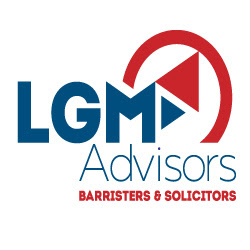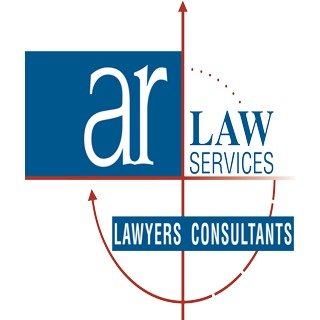Best Debt & Collection Lawyers in Melbourne
Share your needs with us, get contacted by law firms.
Free. Takes 2 min.
List of the best lawyers in Melbourne, Australia
About Debt & Collection Law in Melbourne, Australia
Debt and collection laws in Melbourne, Australia, are designed to protect both creditors and debtors. These laws manage the process of collecting debts and ensure that all parties involved act within legal boundaries. Melbourne, like the rest of Australia, follows national laws while also incorporating unique state-based regulations that pertain to debt recovery practices. The overarching goal is to facilitate fair treatment for all parties, prevent harassment, and provide a clear framework for recovering debts legally.
Why You May Need a Lawyer
The complexities of debt and collection laws can make it difficult for individuals to navigate without professional advice. You may need a lawyer if you are facing any of the following situations: - You are being pursued for a debt you do not believe is legitimate. - You are a creditor attempting to recover debts lawfully. - You are concerned about potential legal actions being taken against you, such as bankruptcy proceedings. - You need help understanding your rights and obligations under Australian debt laws. - You want to negotiate repayment terms or settle a debt dispute.
Local Laws Overview
In Melbourne, debt and collection laws are influenced by both federal and state legislation. Key aspects include: - Australian Consumer Law: Imposes obligations on businesses and debt collectors regarding misleading or deceptive conduct. - National Consumer Credit Protection Act: Regulates credit providers and ensures fair lending practices, impacting debt recovery. - Fair Trading Act (Victoria): Includes rules specific to debt collection practices, aiming to prevent unfair treatment of consumers. - Privacy Act: Protects the privacy of debtor information and regulates how personal information is handled during the debt collection process. - Limitation of Actions Act (Victoria): Sets time limits for how long creditors can take action to recover debts.
Frequently Asked Questions
What is the statute of limitations for collecting debts in Victoria?
In Victoria, the statute of limitations for collecting most debts is six years from the date the debt became due or from the last time the debtor acknowledged the debt.
Can a debt collector contact me at any time?
No, there are specific guidelines on when and how often a debt collector can contact you. Contact is restricted to reasonable hours and must not be excessive or harassing.
Can debt collectors enter my home?
Debt collectors cannot enter your home without permission. They must respect your privacy and adhere to legal protocols when attempting to recover a debt.
What can I do if I think I’m being harassed by a debt collector?
If you believe a debt collector is harassing you, you can file a complaint with the Australian Financial Complaints Authority (AFCA) or contact Consumer Affairs Victoria for assistance.
How can I dispute a debt I don't owe?
To dispute a debt, you should contact both the creditor and the debt collector, providing evidence and reasons why you believe you do not owe the amount claimed. Keeping records of all correspondence is essential.
Can my wages be garnished for debt repayment?
Yes, wage garnishment, also known as a garnishee order, can be used to recover debts. However, this requires a court order, and there are limits on how much can be deducted.
Are there any protections for people experiencing financial hardship?
Yes, creditors and debt collectors must take reasonable steps to assist those in financial hardship. This could involve negotiating payment plans or deferring payments.
What options do I have if I can't pay my debts?
You can negotiate with creditors for a payment plan, apply for a hardship variation, or seek assistance from financial counselors to explore other options like bankruptcy or debt agreements.
What is a debt agreement?
A debt agreement is a formal arrangement made between a debtor and their creditors that allows partial repayment of debts, typically with terms more favorable than bankruptcy.
How do I find a qualified debt lawyer in Melbourne?
To find a qualified debt lawyer, consider seeking references, checking with the local law society for accredited specialists, or utilizing online legal services that match client needs with lawyers.
Additional Resources
For additional support and information, consider reaching out to the following resources: - Consumer Affairs Victoria: Offers advice on your rights and obligations regarding debt collection. - Australian Financial Complaints Authority (AFCA): Handles complaints about financial products and services, including debt collection activities. - Financial Counseling Australia: Provides access to free financial counseling services for those struggling with debt. - Victoria Legal Aid: Offers legal assistance and information on dealing with debt-related issues.
Next Steps
If you need legal assistance regarding debt and collection, start by gathering all relevant documentation about your debts and any communication with creditors or collection agencies. Evaluate the services of local legal professionals, potentially through a referral or specialist law directory. Initial consultations, often available for free or at a reduced rate, can help you understand your position and the steps you need to take. Remember, understanding your rights and obligations under Australian law can empower you to make informed decisions.
Lawzana helps you find the best lawyers and law firms in Melbourne through a curated and pre-screened list of qualified legal professionals. Our platform offers rankings and detailed profiles of attorneys and law firms, allowing you to compare based on practice areas, including Debt & Collection, experience, and client feedback.
Each profile includes a description of the firm's areas of practice, client reviews, team members and partners, year of establishment, spoken languages, office locations, contact information, social media presence, and any published articles or resources. Most firms on our platform speak English and are experienced in both local and international legal matters.
Get a quote from top-rated law firms in Melbourne, Australia — quickly, securely, and without unnecessary hassle.
Disclaimer:
The information provided on this page is for general informational purposes only and does not constitute legal advice. While we strive to ensure the accuracy and relevance of the content, legal information may change over time, and interpretations of the law can vary. You should always consult with a qualified legal professional for advice specific to your situation.
We disclaim all liability for actions taken or not taken based on the content of this page. If you believe any information is incorrect or outdated, please contact us, and we will review and update it where appropriate.












